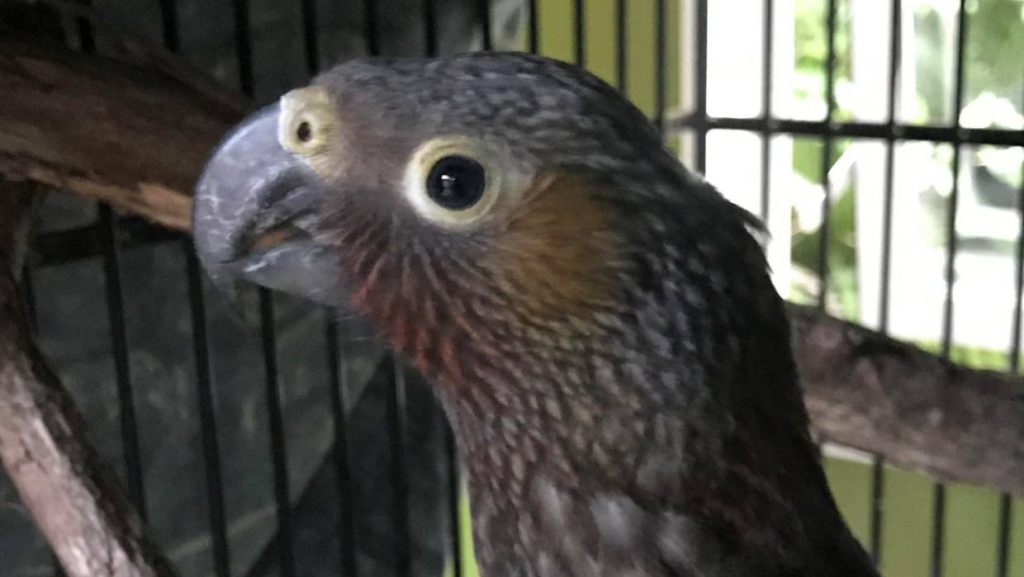Achilles, a Kākā chick, has died at the Auckland Zoo’s vet hospital due to complications brought about being fed with human food.
The zoo got a call from the Native Bird Rescue, which is a volunteer-driven organization based at the northern coast of Waiheke island in Auckland, New Zealand. They reported a Kākā chick suffering from a suspected metabolic bone disease.

Kākā chick before it was euthanized at the Auckland zoo. (Photo: Native Bird Rescue)
Two bird rangers monitoring nests in the island found Achilles, who was sent to Auckland Zoo where he was euthanized after the veterinarians diagnosed him with “scissor beak,” according to a report by Stuff New Zealand.
Scissor beak meant the bird had a deformed beak, where the top and bottom of beaks did not align properly and his bones were bent with a “noticeable dip in the skull,” which are all signs of a metabolic bone disease.
“The kākā very likely developed metabolic bone disease due to its parents bringing it back unsuitable human food items that they picked up in more urban areas,” stated Auckland Zoo senior veterinarian An Pass in their website. “It’s sad because it’s something that is preventable. If its parents were feeding it the right types of wild food it would not have resulted in this tragic ending.”

According to Auckland Zoo, the metabolic bone disease in birds is caused by digesting foods with high ratios of phosphorus to calcium, which is known to be dangerous for the rapid growth of birds.
Human foods that are not allowed for birds are corn, nuts, potato, rice, pasta, beans, crackers, bread and cheese.
80% of kākā chicks, who were monitored by Wellington City council, died in 2016 due to human food eating.
Karen Saunders, spokeswoman for Native Bird Rescue, said the best thing to help is not to feed the birds no matter how the intention is. Instead, people could start growing native trees to provide food source and a nest site for the birds.






